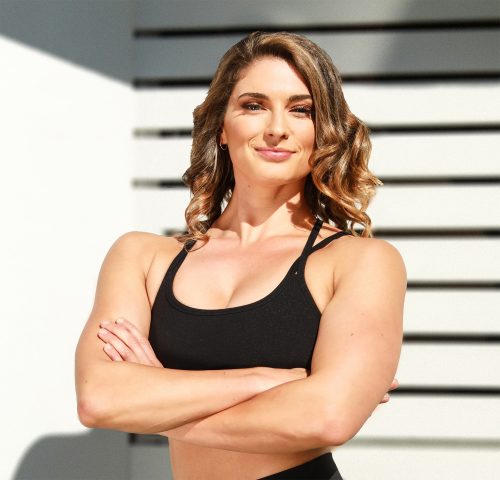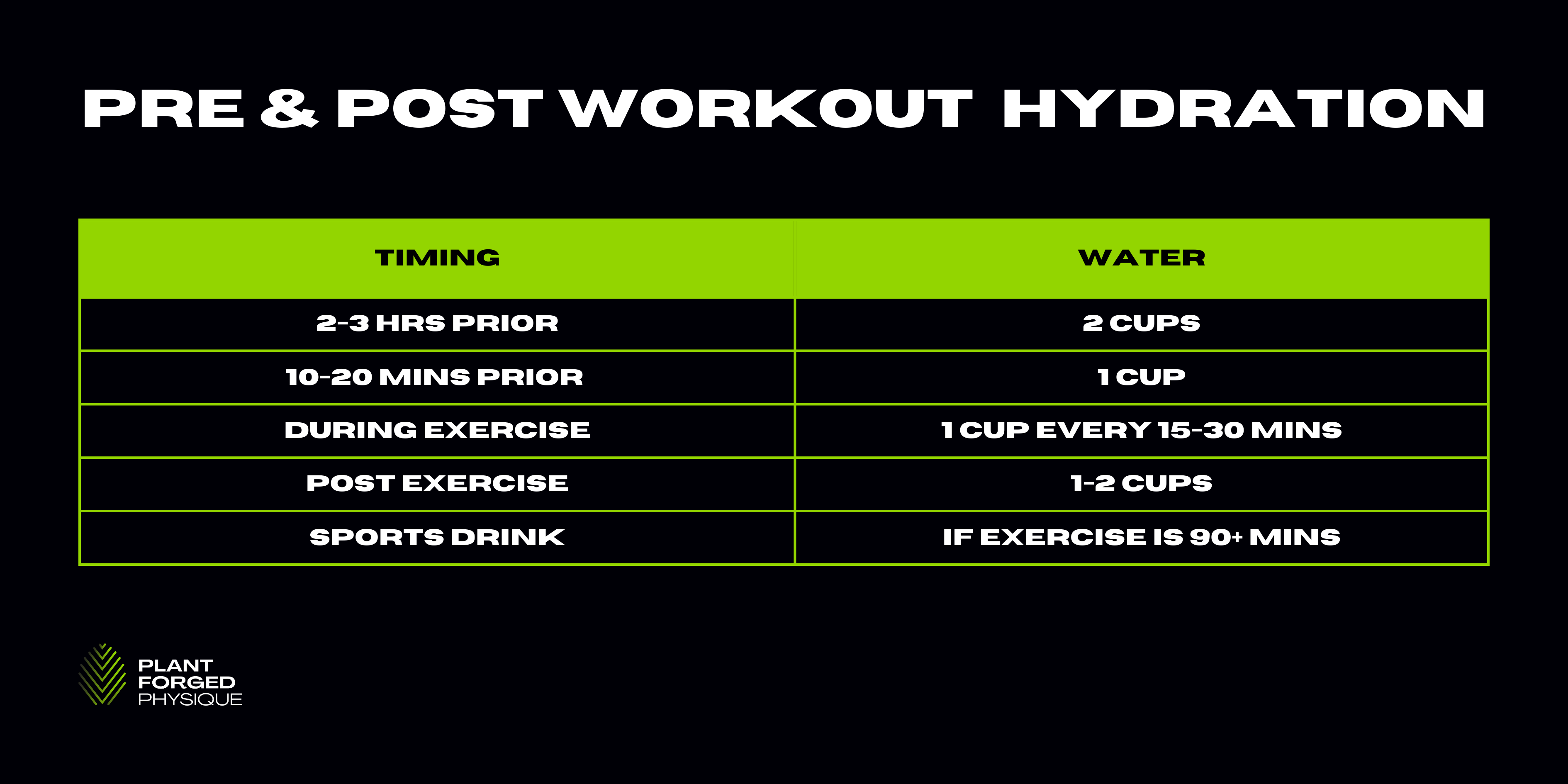Article by Caitlin, a vegan Accredited Sports Nutritionist who works with people looking to achieve an athletic, performance or health and fitness goal at Plant Forged Physique. Her passion is helping vegan athletes thrive and be competitive with evidence-based guidance and expertise. Caitlin is also a competitive IFBB and INBA bikini bodybuilder.
Whether you’re an athlete working towards a competition, a regular gym goer, or just finding your feet in fitness, your pre and post workout nutrition can play an important role in your performance and results.
Knowing what to eat and when, especially if you’re new to veganism, can be daunting. This guide will help break down the principles of pre and post training nutrition to help you achieve your goals faster.
Why are they useful?
You’ll often hear that you need to “fuel” your workouts, in the same way you need to put petrol in a car to keep it running.
Scheduling your food intake and being mindful of certain macronutrients can improve your performance, enhance muscle protein synthesis (MPS), speed up recovery and even improve your mood after a workout.
Timing
Pre-workout
The ideal time to eat your pre-workout meal is 60-90 minutes before training.
This will allow your food to mostly digest by the time you head to your workout. This is a golden window that ensures you utilise the Calories from your meal, while avoiding feeling lethargic or digestional discomfort while training.
Post-workout
You should ideally eat your post-workout meal between 30-60 minutes after training.
This will help quickly replenish the glycogen stores in your muscles and encourage optimal muscle protein synthesis to increase recovery, repair and muscle gain.
Protein
When it comes to pre and post workout, protein is the most crucial. It is the building blocks of your body and is principal to muscle growth and recovery. Having the right amount of protein will increase strength, muscle growth, lean body mass, and physical performance.
Including around 20–40 g of protein both before-and-after your training session is shown to maximally stimulate MPS.
One consideration on a vegan diet is selecting a protein with adequate levels of leucine. Leucine — is an essential amino acid known for its anabolic effect in initiating muscle growth.
The best plant based source of leucine can be found in soy foods like tofu, tempeh, textured vegetable protein (TVP), edamame, or soy protein isolate. Choosing primarily soy foods before-and-after training will help promote maximum muscle growth and recovery.
Any hesitations about soy can be put to rest. There’s a myth that soy has negative effects on hormones, and may contribute to breast cancer or thyroid problems. A 2021 and 2010 review of clinical studies showed soy had zero effect on men’s testosterone or circulating oestrogen levels. Additionally, multiple studies have shown soy reduces your risk of breast cancer and other cancers, and has no impact on your thyroid levels.
Carbohydrates
Carbohydrates are our body’s preferred energy source and vital to train hard and recover well.
So your pre and post workout meals should be dense in carbohydrates. Roughly, you want 20-30% of your total daily carbs in each meal.
So for a person consuming 200g of carbs per day, they would have 40-60g of carbs in their pre-workout and then 40-60g of carbs again in their post workout.
Fats
To get the most bang for your buck regarding MPS and recovery, it helps to optimise the absorption of carbs and protein.
Meals which are high in dietary fat slow down digestion. Consequently, you want to try and keep your fats relatively low – around 10-20% of your total daily intake. This would be around 5-12g of fat for the average person.
Hydration
While not directly related to your food per se, water plays an important role in training performance and recovery. Dehydration increases your body temperature and heart rate and decreases blood volume. This reduces performance, skill level, endurance, strength, and increases fatigue during training.
Depending on the exercise intensity and duration, a guide is to have two cups of water 2-3 hours prior to exercise, and one cup of water 10 to 20 minutes before working out. During exercise, aim for one cup of water for every 15 to 30 minutes of intense physical activity, especially if you are sweating profusely or are training in a heated environment.
If you’re completing a long workout over 90 minutes, consuming a sports drink either before, during or after can help manage lost electrolytes from training.
Key takeaways
Getting used to pre and post workout nutrition as a vegan can take some trial and error to include it into your daily meals, but it is completely doable.
When it comes down to it, there are a lot of similarities between pre and post workout nutrition and often your pre-workout meal can be the same as your post-work out meal (if you enjoy it!)
An average diet of 2000 Calories per day would follow roughly these guidelines for both their pre and post workout meal:
- 20-40g of protein
- 40-80g of carbs
- 5-12g of fat
- A few glasses of water or a sports drink
- Eaten at around 60 mins either side of your training
If in doubt, focus on getting in carbs, protein and hydration on either side of your training and you’ll be able to reap the benefits of pre and post workout nutrition.
Simple, 4-ingredient example meals
Protein Porridge
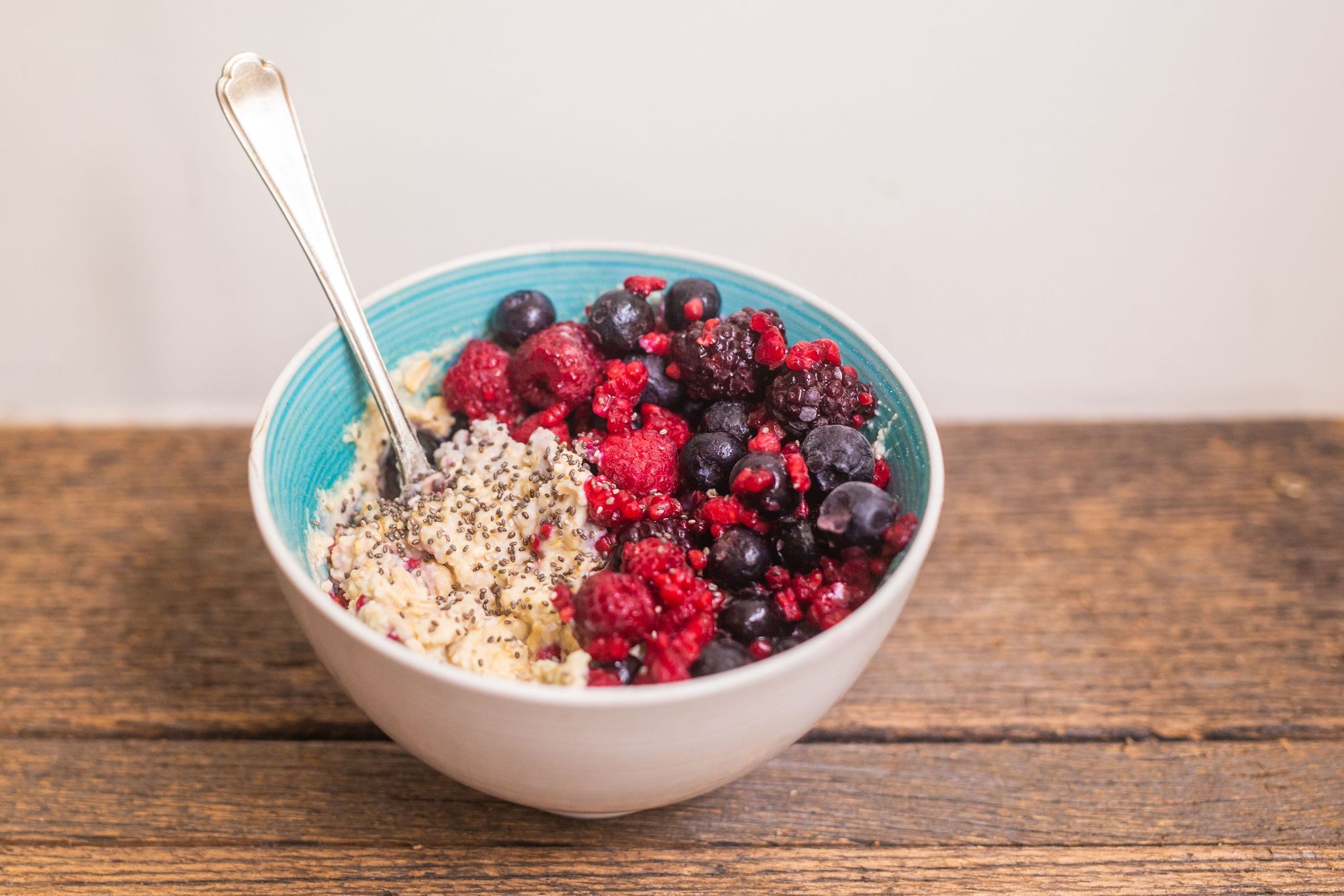
50g of rolled oats
40g of soy protein powder
150g of frozen berries
200ml of soy milk
Optional: sprinkle of chia seeds
Protein: 45g | Carbs: 50g | Fat: 8g
Tofu Stir-fry
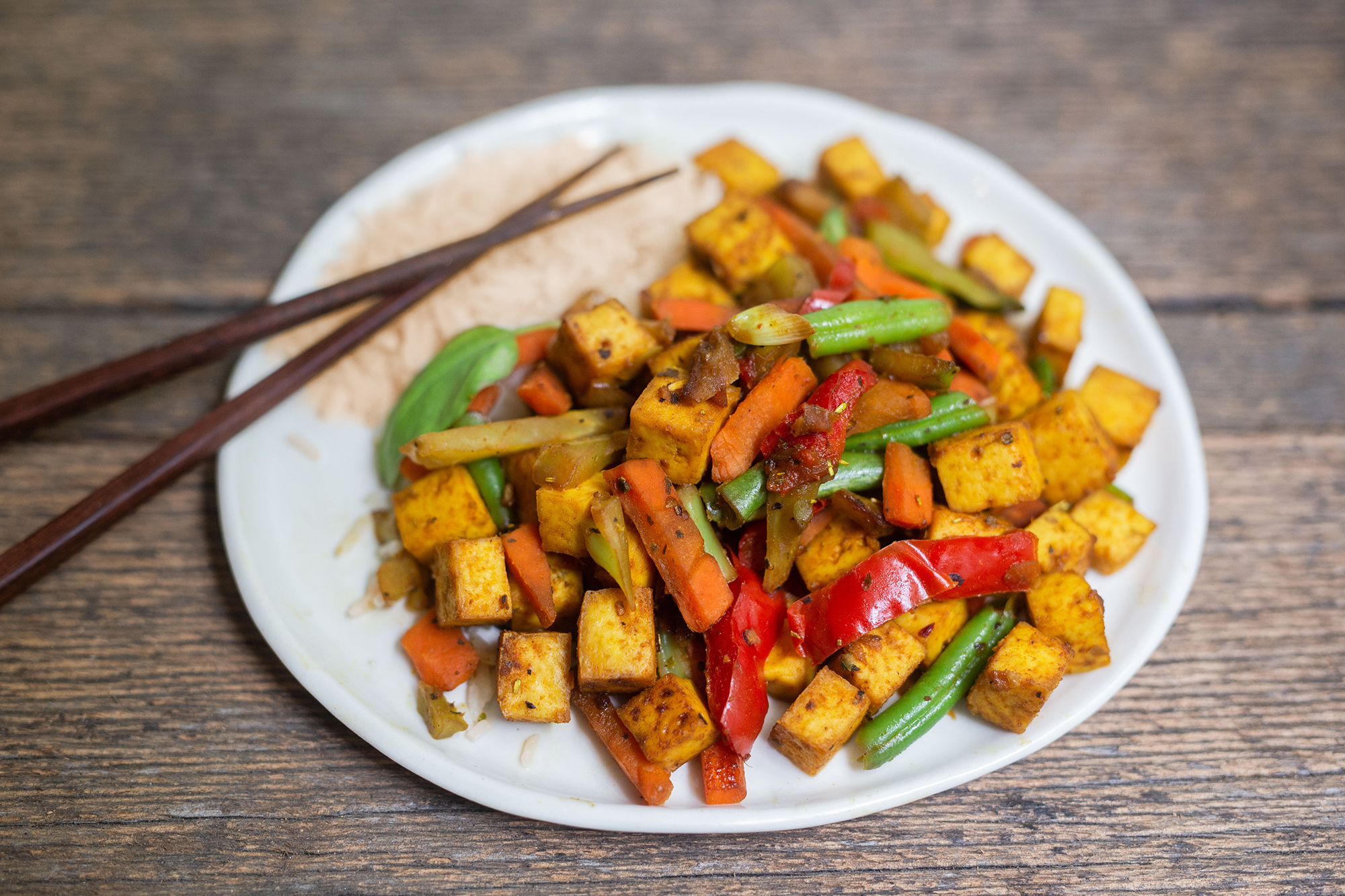
200g of firm tofu
200g of mixed stir fry vegetables
50g of brown rice
25ml of soy sauce
Protein: 40g | Carbs: 60g | Fat: 6g
TVP Burrito
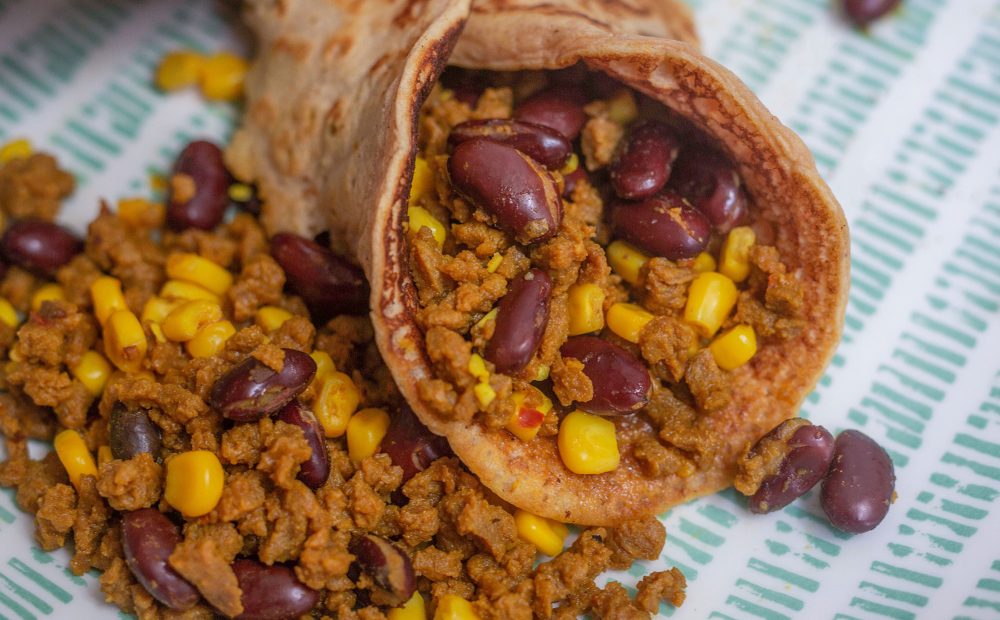
½ can of kidney beans (125g)
40g of uncooked TVP
1 whole grain tortilla
20g of burrito mix
Optional: corn kernels
Protein: 40g | Carbs: 70g | Fat: 10g
